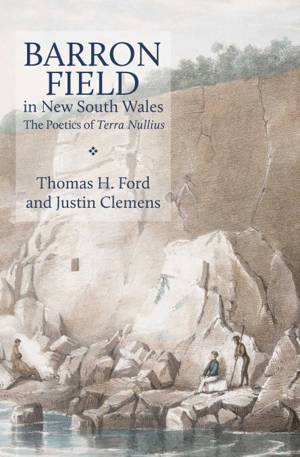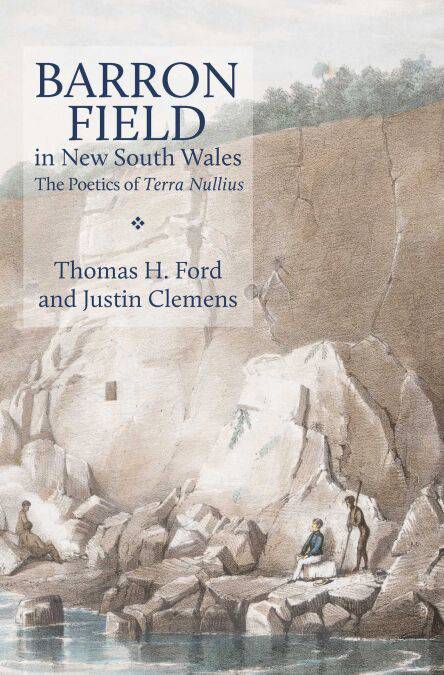
- Afhalen na 1 uur in een winkel met voorraad
- Gratis thuislevering in België vanaf € 30
- Ruim aanbod met 7 miljoen producten
- Afhalen na 1 uur in een winkel met voorraad
- Gratis thuislevering in België vanaf € 30
- Ruim aanbod met 7 miljoen producten
Zoeken
Barron Field in New South Wales E-BOOK
The Poetics of Terra Nullius
Thomas H Ford, Justin Clemens
E-book | Engels
€ 16,15
+ 16 punten
Omschrijving
On 24 February 1817, Barron Field sailed into Sydney Harbour on the convict transport Lord Melville to a ceremonial thirteen-gun salute. He was there as the new Judge of the Supreme Court of Civil Judicature in New South Wales - the highest legal authority in the turbulent colony. Energetic and gregarious, Field immediately set about impressing his vision of a future Australia as a liberal and prosperous nation. He courted the colony's leading figures, engaged in scientific research and even founded Australia's first bank. He also wrote poetry: in 1819, he published First Fruits of Australian Poetry, the first book of poems ever printed in the country. In England, Field had been the theatre critic for The Times, and a friend of such major Romantic writers as William Wordsworth, Charles Lamb and Leigh Hunt. In New South Wales, he saw the chance to become a major figure himself, someone who could shape culture and society in enduring ways. Founding Australian poetry was part of that ambition; so too was law. Asked to determine whether Governor Macquarie had authority to impose taxes in the colony, Field issued a fateful judgement that established, for the first time, what is now called terra nullius. This book is an extraordinary reconstruction of the circumstances and implications of Field's actions in New South Wales using an original and revealing method: the close reading of his poetry.
Specificaties
Betrokkenen
- Auteur(s):
- Uitgeverij:
Inhoud
- Aantal bladzijden:
- 224
- Taal:
- Engels
Eigenschappen
- Productcode (EAN):
- 9780522878790
- Verschijningsdatum:
- 6/03/2023
- Uitvoering:
- E-book
- Beveiligd met:
- Adobe DRM
- Formaat:
- ePub

Alleen bij Standaard Boekhandel
+ 16 punten op je klantenkaart van Standaard Boekhandel
Beoordelingen
We publiceren alleen reviews die voldoen aan de voorwaarden voor reviews. Bekijk onze voorwaarden voor reviews.











